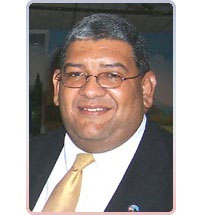Florida Gov. Rick Scott signed TANF Drug-Screening into Law – May 31, 2011
Welfare. While a beneficent word, one found in the Preamble of the U.S. Constitution, many Americans shutter at its mention. Why? It is most closely associated with the Temporary Assistance for Needy Families (TANF) program. In other words, it has to do with that unpopular issue of poor people and helping them.
There’s a new law on the books in Florida and two other states that mandate mostly single mothers be tested for drug use in order to receive support through the TANF program.
I can hear the Florida legislature cheer, “Finally! We’re not going to have to help so many poor families! They’ll be dropping from the TANF rolls like flies!”
But wait. Hold your applause. Only about 4% of TANF recipients actually have a drug problem that would negatively affect successful employment (National Poverty Center, 2004; Pollack, Danziger, Jayakody, & Seefeldt, 2001).
“Eh, well this program is going to SAVE taxpayer money!” Not exactly. Under the law, recipients of cash assistance pay upfront for their drug test and when it comes back negative, the state issues a refund. The state ends up spending MORE than it saves (ACLU Utah, 2011; Greenblatt, 2010). For example, TCPalm (2011) reported that piloting this program cost Florida taxpayers $2.7 million back in 1998 because just 4% of people popped positive and actually paid for the test. As the authors ask, if the average assistance per month is $240.00, how many folks would have to be kicked off the program in order to recoup the $2.7 million in losses?
It doesn’t add up. So if drug testing doesn’t actually save money, then it helps the poor stay off drugs, right? Wait, I just implied that most of the poor in our country are drug abusers. Stereotypes are persistent little buggers. I meant to say drug-testing helps those with substance abuse problems get the treatment they need. Because of course, the goal of temporary assistance is to eventually support TANF recipients returning to full-time, competitive employment healthy.
Nah. The community mental health clinics that folks might go to are swamped and lack adequate funding. And the legislators who want to reduce drug use aren’t championing more mental health resources in our communities anytime soon.
In fact, Pollack et al. (2001) confirmed that mental health disorders are far more prevalent than drug dependence among TANF recipients. Yet, a drug test isn’t going to screen for depression, post-traumatic stress disorder, or the host of other mental health challenges impacting folks’ ability to find and keep a job. We might be looking at the wrong thing here.
If taxpayer money isn’t being saved, if the prospect of helping families find and excel in competitive employment isn’t being enhanced, and if other factors like poor education, lack of transportation, and physical/mental health problems aren’t being addressed, then what is?
Greg Matos is a Clinical Psychology doctoral student in Boston and author of “Shattered Glass: The Story of a Marine Embassy Guard.” You can visit his web site: www.GregMatos.com or Twitter: @GregMatos.
Resources
- ACLU Utah. (2011). Issue brief: Drug testing of TANF recipients.
- Greenblatt, A. (2010). Should welfare recipients get drug testing?
- National Poverty Center (2004, April). Policy brief: Substance abuse and welfare reform.
- Pollack, H., Danziger, S., Jayakody, R., & Seefeldt, K. (2001). Drug testing welfare recipients: False positive, false negatives, unanticipated opportunities. Women’s Health Issues, 12(1): 23-31.
- TCPalm (2011). Editorial: Florida law requiring drug testing of welfare recipients bad public policy, waste of money.

 Yesterday, we at RIFUTURE learned the news of the passing of one of our progressive leaders in our state: Providence Ward 9 Councilman Miguel Luna.
Yesterday, we at RIFUTURE learned the news of the passing of one of our progressive leaders in our state: Providence Ward 9 Councilman Miguel Luna.